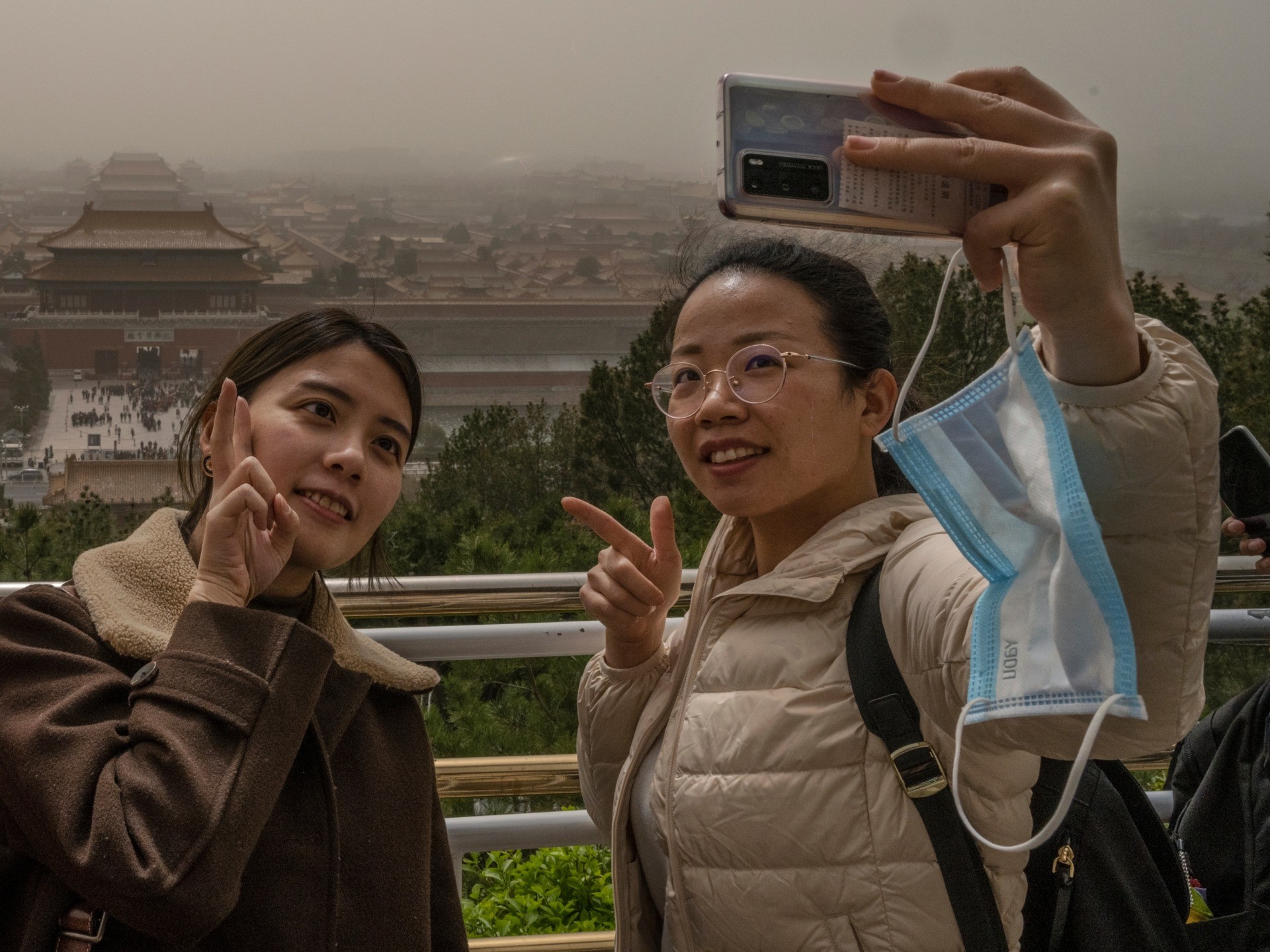China marked its “Youth Day” – part of a five-day celebration of Marxism that begins with May 1, or “International Workers’ Day” – on Tuesday, claiming the nation’s youth is a growing demographic targeted by the nation’s “red tourism,” or industry devoted to visiting sites with historical ties to communism.
Among the most popular stops on “red tourism” tours are sites along the route of the “Long March,” in which Mao forced his army to walk about 6,000 miles across the Chinese heartland to fight the then-ruling Nationalists between 1934 and 1936. At least 30,000 people died in the expedition. Another popular trip for ardent communists is a visit to Beijing’s Tiananmen Square, where the Communist Party massacred at least 10,000 people and possibly up to a million in a crackdown on a pro-democratic uprising in 1989.
Despite the ongoing Chinese coronavirus pandemic, the Communist Party has enthusiastically encouraged citizens to travel around the country for the annual May Day holiday, both to boost the economy and celebrate the alleged triumph of Beijing over the pandemic it helped create. Effusive state media coverage of large crowds congregating in major cities, beachside resorts, and landmarks like the Great Wall omitted the fact that China is significantly lagging behind comparable countries in coronavirus vaccinations, potentially causing outbreaks traceable to mass events.
Given the arrival of “Youth Day,” the state-run Global Times newspaper emphasized the importance of young travelers to the nation’s economic growth, particularly to the profits possible through “red tourism.” Young tourists have become the “main force of ‘red tourism,'” the newspaper claimed.
“Among the core population for red tourism in this holidays, people aged 21 to 30 accounted for more than 40 percent, the biggest group of all ages. Overall population under 40 accounted for 89.1 percent, according to a report by the Tongcheng Tourism Institute,” the state propaganda outlet noted. “A recent report by Alibaba’s Fliggy revealed that ‘red tourism’ bookings by people born during the 2000s saw a 630 percent year-on-year increase.”
People born during the 2000s are part of a generation known in the West as “Generation Z,” one generation removed from Millennials. The Pew Research Center considers anyone born in 1997 and after as “Generation Z.”
The emphasis on this younger generation, and not Millennials (born between 1981 and 1996), may hint at a lost cultural battle for the Communist Party with the older generation. China has invested heavily in attempting to stir revolutionary fervor in Millennials, publishing state-sponsored rap songs like “The Reform Group Is Two Years Old” and “Marx Is a Millennial” featuring samples of speeches by dictator Xi Jinping to entertain the youth. Communist Party hip-hop largely failed to build a following, forcing Beijing to ban organically created rap music from television and crack down on Western cultural influences that were clearly more popular than official state fare.
Chinese Millennials have since embraced what is known as “Sang culture” – a form of existential hopelessness in which they aspire to nothing and expect no success or joy in their lives under communism.
“Pronounced ‘sung,’ this Chinese word means ‘mourning,’ and is now the trending word to reflect the reduced work ethic, a lack of self-motivation, and an apathetic demeanor felt by urban, middle-class Chinese young people,” China’s state-run CGTN explained in 2017. “Popular internet memes such as the soulless troll ‘Pepe the Frog’ and the self-loathing BoJack Horseman from the titular American TV show have become the mascots of China’s ‘sang-culture.'”
Reuters quoted a popular Sang culture Millennial internet “personality” that same year lamenting the pressure to fanatically embrace communism: “I wanted to fight for socialism today but the weather is so freaking cold that I’m only able to lay on the bed to play on my mobile phone.”
The Global Times‘ – and other state-run outlets’ – depiction of the generation following Millennials differed significantly from the malaise that characterizes Sang culture. The Times in particular cited excitable comments by “netizens,” the citizens allowed to post opinions on social media as they agree with the government, thanking communist “martyrs” for their sacrifices and embracing state propaganda.
“China has changed so much in the past century. Thank these pioneers!” one “netizen” reportedly wrote.
“I really want these patriots of the May Fourth Movement to see the development achievements and beautiful scenery of today’s China,” another comment read.
“As the most dynamic and creative group in society, young people should stand at the forefront of innovation and creation. They should not only care about their family and country but also have concern for humanity,” the state news agency Xinhua declared in an article published Tuesday. “China is closer than ever to realizing the rejuvenation of the Chinese nation, but it is also facing both foreseeable and unforeseeable risks and challenges on the road ahead. Chinese youth are a source of indispensable strength for the country in tackling the difficulties ahead.”
Xinhua also celebrated with some “quotable quotes” on youth from dictator Xi Jinping, such as “Looking ahead, we can see that our younger generation has a promising future and will accomplish much.”
